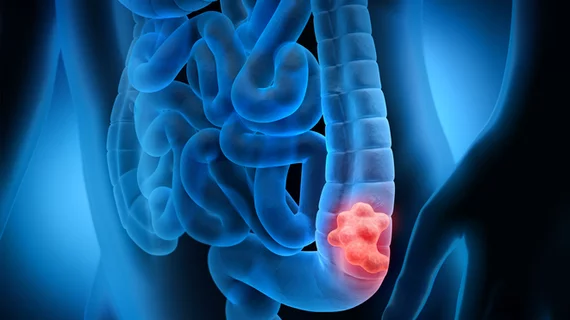Short CT colonography reporting intervention improves radiologists' detection of cancer
Radiologists who read computed tomography (CT) scans of the colon could see a boost in detection sensitivity after completing a short training intervention geared toward identifying early stage cancer.
Early detection — via colonoscopy or CT colonography (CTC), both with known high sensitivity — reduces mortality by up to 15%. Endoscopists involved in the more common procedure must undergo quality assurance training and required accreditation. But radiologists who interpret CTC face no such requirements. This has some experts concerned, as a lack of individualized training has the potential to decrease diagnostic sensitivity.
This led researchers to develop a short, one-day individualized training on CTC reporting for experienced radiologists.
“We hypothesized that radiologists’ diagnostic accuracy for CTC screening could be improved by individualized training with ongoing feedback,” corresponding author Dr. Andrew A. Plumb, from the Centre for Medical Imaging at University College London, and coauthors explained.
To test their theory, researchers conducted a cluster-randomized controlled trial that divided experienced radiologists from 69 hospitals into two groups: an intervention group that completed the CTC reporting training and received feedback, and a control group in which interventions were not made. To assess the workshop’s effectiveness, the sensitivity for 6-mm or larger lesions was analyzed over a span of 12 months.
One month after the intervention, radiologists’ sensitivity was measured at 66.4%, compared to 42.4% in the control group. Over the span of a year, the intervention group sustained a 16.7% sensitivity improvement. The intervention group was also more likely to detect flat lesions than the control group, regardless of reader experience.
“We believe that training and ongoing assessment should be mandated for practitioners interpreting CTC scans, and given the improvements we observed among screening radiologists, it certainly should be mandated within national screening programs,” the experts suggested.
Given their positive findings, the experts believe that most radiologists would support the move to require assessments and accreditation.
You can view the detailed report in Radiology.

